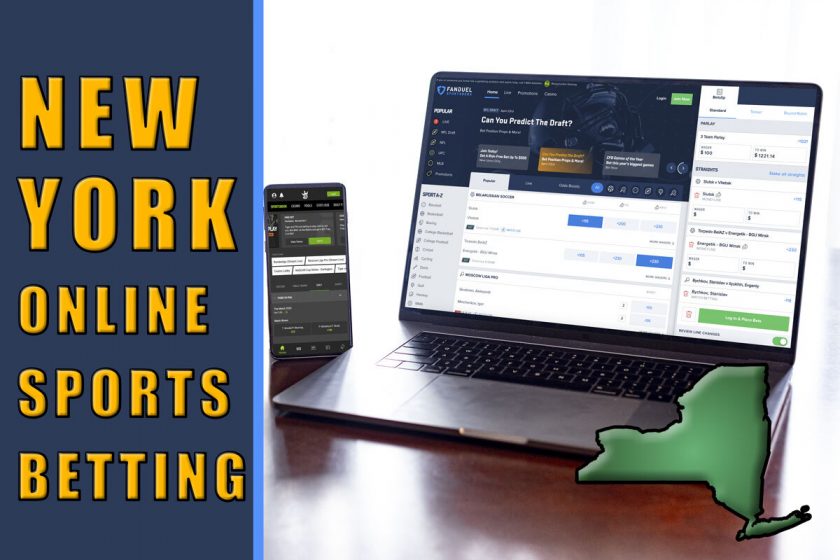Gaming Commission Clears Up New York Online Sports Betting Questions

What in the world is a platform provider? What will an operator actually, you know, DO for New York online sports betting? When will sports betting be available in the state for New York residents?
The New York Gaming Commission published an FAQ section to its website to answer the most commonly asked questions of its recently approved online sports betting program.
The gaming commission will effectively choose a minimum of two platform providers through a request for application (RFA) process beginning by at least July 1. Interested companies submitting platform provider bids will also include a minimum of four mobile sports operators, or skins, for state gamblers to utilize.
NY Online Sports Betting Most Burning Questions & Answers
One of the biggest points of confusion in the bill is the differing roles of platform providers and mobile sports betting operators in the New York online sports betting plan. The gaming commission gave the first defined role of the platform provider since its initial mention in the state budget document.
Q: What is the role of a platform provider?
A: A platform provider must provide a system that, among other functionality, performs the acceptance and registration of all wagers; generation of all electronic wagering tickets; computation of wagering in the pool and payoffs; maintains records of all wagering activities; and generation of all reports required by the Commission.
An operator, the commission notes, will be the consumer facing entity in the online sports betting program. The platform provider will be the “back of the house” system that accepts and records wagers brought in through the skin apps. Operators must use the technology built by the platform providers for the acceptance and processing of all wagers.
Interestingly, a platform provider may also serve as an operator as well. For example, if DraftKings submitted a bit that was accepted by the commission to serve as a platform provider, it could also serve as one of the online sports betting providers, or apps, for state bettors.
In regards to the RFA process, companies will submit bid packages with potential gross revenue estimates, potential tax rate it’s willing to pay the state, past experience in the field, a timeline of its potential operations and its willingness to enter into revenue sharing agreements with the state’s Native American tribes or nations.
Each bid package will receive a score based on these factors. Scoring criteria will be released when the RFAs are released, but the commission did note that platform operators who have agreed upon revenue shares with Tribal Nations in their package “will receive additional point consideration when its bid is scored.”
The commission noted that existing in-state relationships for potential platform providers will not be taken into account when choosing a bid package.
Q: Since four operators are already partnered with commercial casinos (DraftKings, FanDuel, Bet365, and BetRivers) is there really opportunity for additional players?
A: Contracts between commercial casinos and operators of their in-house sports wagering will have no relevance to the RFA. The RFA is open to all qualified platform providers and operators, and awards will be made to the highest scoring applicants.
The accepted platform providers will be responsible to make payments of the agreed upon sports betting revenue tax to the state. Platform providers will also pay the cumulative $20 million ($5 million per casino) annual fee to the four state casinos to house sports betting servers. Platform providers cannot choose in which casino their server will be housed.
Timeline Of The New York Online Sports Betting Program
Timing will be key for the New York online sports betting program, as the lucrative NFL season is set to begin by September. After platform provider bid packages are received by Aug. 1, the gaming commission has 150 days to make a decision. It is unknown at this point if the entire 150 days will be needed to come to a final decision and a timeline cannot be provided, according to the commission.
No date has been targeted by the commission to have the online sports betting system operational.
The Commission has no preference but will seek to have the system operational as soon as practicable.
What else remains to be figured out?
A number of other questions were answered or clarified by the gaming commission:
- Wagering on horse racing will not be allowed in the online sports betting program.
- A platform provider may potentially lose its online sports license if the commission found it provided intentionally misleading information regarding its revenue projections.
- Platform providers can combine their bid packages, but would each still be required to pay a separate $25 million license fee.
- The state will have to select a minimum of two platform providers, but reserves the right to add more. “After reviewing all proposals, the Commission will determine the optimum number of licenses to award that will maximize revenue to the State.”
Covering regulatory developments in online gambling throughout this fine country.






